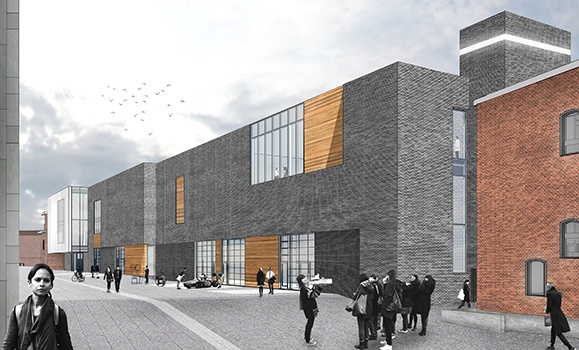The Emera ideaHUB, Dalhousie University’s new incubator for companies building physical products, has accepted its first seven resident companies, and has room for more.
The goal of ideaHUB is to provide working space and mentorship for companies that aim to produce and sell physical products, not just software. The facility aims to link its resident companies with experts at the Faculty of Engineering and provide access to workshops and 3D printers.
Companies developing a product or hardware have special needs, such as building prototypes and devising manufacturing and supply chain strategies. The ideaHUB’s goal is to provide the support for these companies that is unavailable elsewhere.
“I think Canada has identified innovation and growth as keys to success for our economy,” said Margaret Palmeter, Manager of the Emera ideaHUB. She added that organizations in Atlantic Canada have identified “that we need to grow more companies here in Atlantic Canada, and where better than our academic institutions for these next-gen ideas?”
The facility on Dal’s Sexton Campus is still under construction, but ideaHUB has already accepted the following companies:
- NewAE Technology;
- Graphite Innovation & Technologies;
- NovaResp Technologies;
- Aurea Technologies;
- ColourSmith Labs;
- Maritime Biologgers;
- And, Rayleigh Solar Tech.
The space is designed to accommodate as many as 12 companies, each employing two to three people, though Palmeter thinks the space could fit closer to 15. The ideaHUB is still accepting and looking for applicants.
The ideal candidates are product-based companies with sound business and technology ideas, but without the resources to develop prototypes and MVPs. The facility helps startups validate their technology and bring a minimum viable product to market, so they can start earning revenue and attracting investors.
Some companies in the space have developed prototypes, and some have sales, and the facility aims to help them scale. The team works to connect startups with experts from Dalhousie’s engineering department to help solve technical problems.
Each of the accepted companies was interviewed by the ideaHUB’s review committee, and the conversation focused on what the facility could do for the startup and finding companies that fit ideaHUB’s mandate, said Palmeter. The goal is for each company to outgrow the space within 18 months, she said.
The ideaHUB has 3-D printers for building prototypes, and is installing an electronics lab with onsite technical support professionals who can help with unfamiliar equipment. The ideaHUB is above machine and carpentry shops, which the startups can access.
Palmeter said the ideaHUB asks entrepreneurs to look at their product through three lenses. Firstly, they consider the technology and ask if it’s possible to build their product, and if so, at what cost. From a design standpoint, they must ask how the product will be used. From the business angle, they must consider how the venture will be funded and how much it will cost to get their product to market.
Nova Scotia now has several components of an innovation ecosystem in place to help companies to succeed, said Palmeter, and the ideaHUB is trying to fill a gap.
“We’re going to make sure that what we’re creating is the strongest platform possible for these companies to succeed, and for the best tech-based companies to succeed,” she said.










